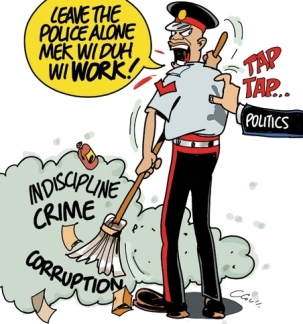
Victor Ako Mengot
Sierra Leone Telegraph: 16 April 2106

At last the Parliamentary Oversight Committee on Internal Affairs has considered the issue of the ‘Okada Menace’ during a recent parliamentary Inquiry.
And after receiving submissions from all the stakeholders, including the Sierra Leone Road Safety Authority (SLRSA), the Police and the Okada Bike Riders Association, members of the committee ordered the SLRSA to produce Road Rules and Regulations for Commercial Bike Riders, within two weeks.
At the same time the police were also to provide rules and regulations for Commercial Bike Riders.
Laudable as this approach may be, it is the duty of members of parliament to review current legislations and amend them in accordance with changes in societal behaviour.
 For example, the existing Act that governs the operation of road transport in Sierra Leone (The Road Traffic Act 2007) needs to be updated, for the following reasons.
For example, the existing Act that governs the operation of road transport in Sierra Leone (The Road Traffic Act 2007) needs to be updated, for the following reasons.
– When the SLRSA was re-branded as the main authority for Traffic Safety Management, subsequent sections of the Act needed to be amended.
These include the separation of powers for traffic enforcement between the SLRSA, the Police and Municipal Authorities (i.e. Freetown City Council). This will in turn improve coordination and establish a transparent ‘Chain of Command’ structure.
– There is provision in the Act for the issuance of licence for motorcycle riders, but the Act does not state the nature of examination for obtaining such a licence and, or the procedure for testing a commercial motorbike rider.
– There is the urgent need to review the rules of the road and related enforcement measures that will eventually lead to the production of a Highway Code, forming the basis for the future development of the curricula for testing drivers and motorcycle riders.
 Unless and until the law in the form of the 2007 Traffic Act was reviewed and updated, it is unlikely that the various enforcement authorities will be able to manage the current traffic lawlessness and high rates of accidents.
Unless and until the law in the form of the 2007 Traffic Act was reviewed and updated, it is unlikely that the various enforcement authorities will be able to manage the current traffic lawlessness and high rates of accidents.
The ‘okada’ riders on the other hand, have argued that they are providing a service that is desperately needed by the public, due to the lack of a decent and sustainable transport system, while at the same time creating employment of jobless youths.
They also claim that they have introduced a system of self – regulation by having their own marshals to regulate the conduct of their members.
Self-regulation opens a whole can of worms, because if all professions, for example; doctors, engineers and architects were allowed to regulate themselves, the outcome will be devastating for the country and its citizens.
 The Riders Association also mentioned that, problem riders are those who operate bikes owned by police officers who are regarded as ‘untouchables’.
The Riders Association also mentioned that, problem riders are those who operate bikes owned by police officers who are regarded as ‘untouchables’.
The solution to this problem is simple. Police officers should be barred from owning commercial motorcycles.
In conclusion, the transport system in Sierra Leone needs a complete overhaul. The authorities must take full control of all matters relating to the planning, regulating and managing the entire road transport system.
But this must be done in partnership with the private sector and public interest groups – such as the Passenger Welfare Association, and the Drivers and Commercial Bike Operators Unions.

This is a complex issue, but the cause and effects are known. To seriously fix the problem is easy, if we as a people are truly committed to safety, and law enforcement.
The role of government is to provide good and effective laws that can be implemented for public good. At the center of all this is the issue of governance. The law should only direct the agency that is responsible to create the policies, and systems necessary to enforce the law and prescribe a source to fund it’s enforcement.
I can put that together, including all stakeholders involvement in 6 months for a cost less than $150,000 and ensure that the system is sustainable in the long haul, with revenue generated to enforce it. This is no brain science, just needs the commitment and a vision to realize it.